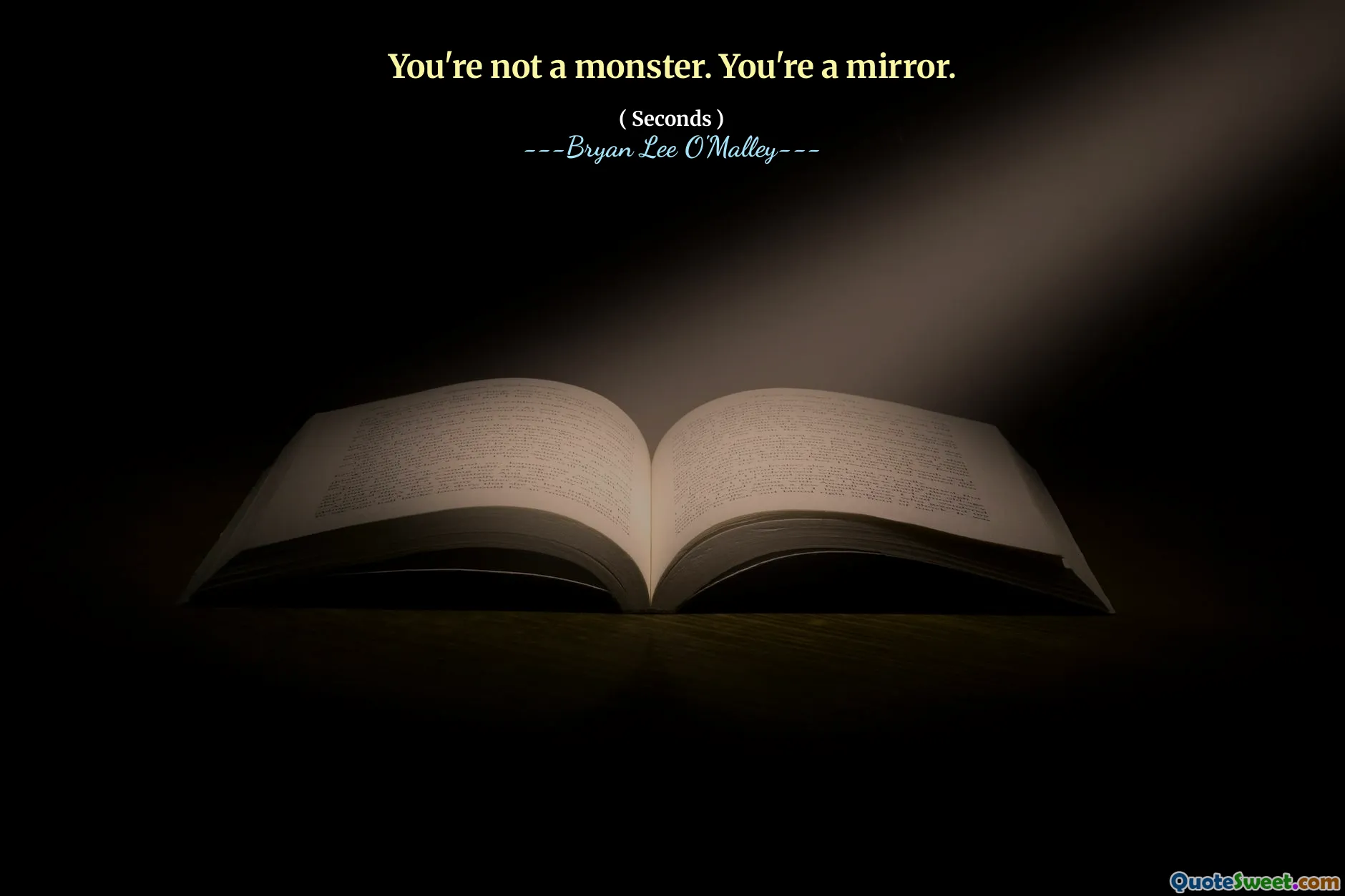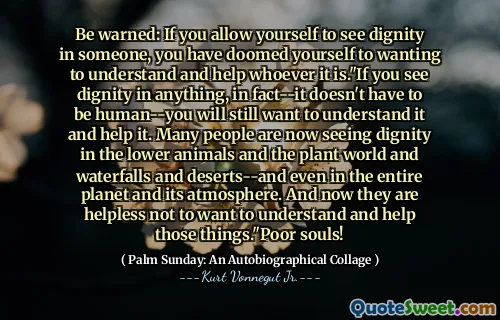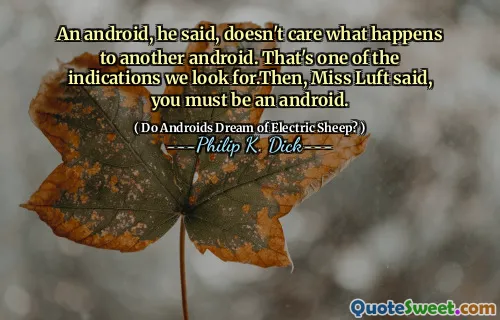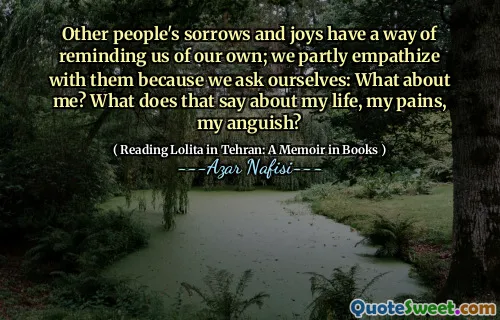
You're not a monster. You're a mirror.
This quote poignantly captures the idea that our perception of others often reveals more about ourselves than the person we are judging. When someone is called a "monster," it's typically a reflection of the fears, prejudices, or unresolved issues within the observer. By stating "You're a mirror," the quote suggests that individuals reflect the emotions, biases, or darker aspects that we project onto them. In other words, what we see in others is frequently a projection rather than an objective reality.
This concept invites deep self-reflection. It challenges us to question our instinctive judgments and consider how much of our reaction to others might stem from our own inner struggles. Instead of demonizing someone whom we perceive as "monstrous," this mindset encourages empathy and introspection. It implies that understanding ourselves better can lead to understanding others—and perhaps even recognizing the humanity within those we might otherwise fear or despise.
Moreover, being a "mirror" implies that individuals hold up a reflection of society or the people around them. They reveal societal issues, personal insecurities, or collective fears. This perspective promotes a more compassionate, less judgmental worldview. If we shift our approach from condemnation to curiosity, we nurture emotional growth and interpersonal connections. This can apply to personal relationships, social critiques, and even inner dialogue.
Ultimately, the quote from Bryan Lee O'Malley's (Seconds) offers a powerful message about perception, projection, and empathy. It redefines the notion of "monstrosity" as something projected rather than inherent, urging a reflective and compassionate approach to how we see others and ourselves.





